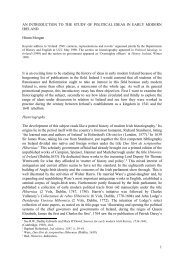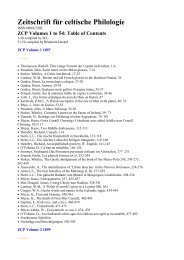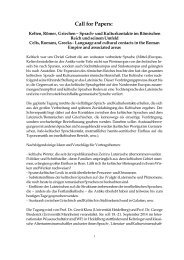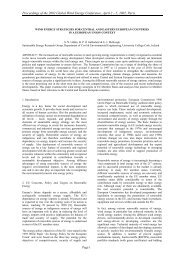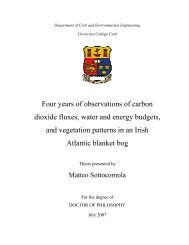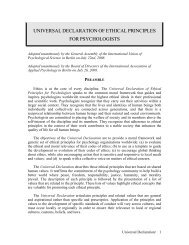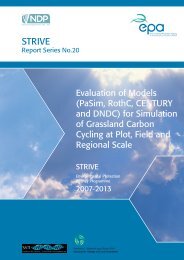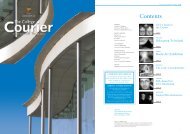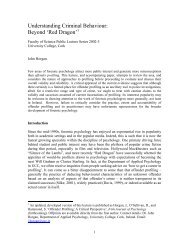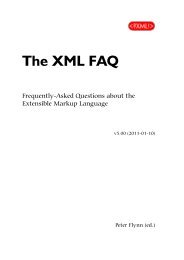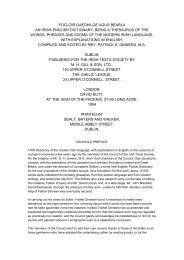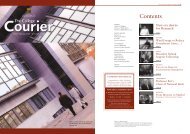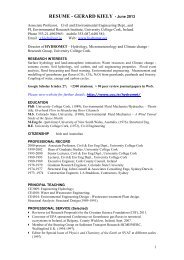2013 - University College Cork
2013 - University College Cork
2013 - University College Cork
You also want an ePaper? Increase the reach of your titles
YUMPU automatically turns print PDFs into web optimized ePapers that Google loves.
Research Projects Listing<br />
THE ECOLOGY OF AN AVIAN PREDATOR AT THE TOP<br />
OF THE MARINE FOOD CHAIN<br />
Research Centre/Department/School: BEES<br />
Contact PI: John Quinn (j.quinn@ucc.ie)<br />
Researchers: Chris Honan (student), Dr. John Quinn (Lecturer in BEES),<br />
and Dr. Jim Reynolds (Lecturer at the <strong>University</strong> of Birmingham)<br />
Start Year: 2012<br />
End Year: ongoing<br />
Funding Body: Private<br />
Funding: Private<br />
Collaborating Partners: <strong>University</strong> of Birmingham<br />
Great black-backed Gulls are omnivorous, scavengers, kleptoparasites and predators at the top<br />
of their marine food chain. In common with other marine vertebrates, the ecology of the great<br />
black-backed gull is likely to be strongly infuenced by human activities. It is widely believed that<br />
the abundance and distribution of this species has been driven by the availability of discarded fish<br />
and offal, and by access to human refuse, but this has yet to be tested in this species. This study<br />
aims to investigate the extent to which changes in fishing industry practices and human refuse<br />
management have affected great black-backed gull populations in Ireland, and what if any effect<br />
this has had on their prey species. The PhD student, Chris Honan, has been studying the ecology<br />
of the great black-backed gull on the island of Ireland’s Eye, off Howth, Co. Dublin since 2009. His<br />
general approach is to use a range of remote and direct observational techniques for understanding<br />
how the foraging habits of this top predator are influenced by human activities, how this affects<br />
individual life histories and in turn what impact this is having on their populations. This single<br />
population approach is being expanded to examine large scale patterns of variation in population<br />
characteristics around the Irish coast. The outcome of the research will be an understanding of<br />
how human activities influence top predator in a marine ecosystem and what effect this is likely to<br />
have on other species in the food chain.<br />
RESEARCH PROJECTS<br />
6



